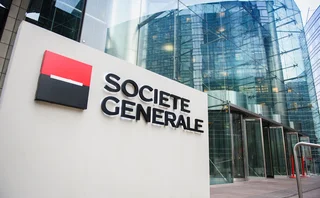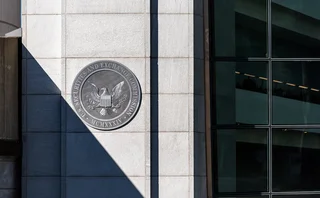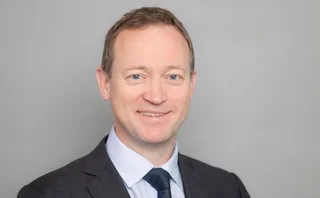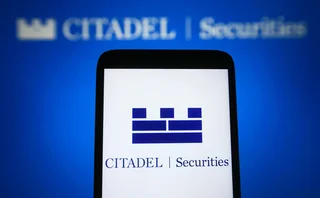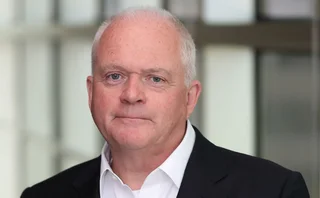
Funds flow in France
The €16 billion French National Reserve Pension Fund is now being allocated to asset managers, amid media cries of local bias – even though foreign firms have won awards. Credit looks at the winners and losers of the allocation process

Key points |
• The FRR has allocated €7.2bn of its €16bn fund to managers for |
This summer will not be easy for dealers and issuers trying to place paper. On top of the many problems caused by continental European investors disappearing on month-long holidays, borrowers will also have to compete with the distractions of the Athens Olympics.
The difference this year, however, is that after eight months of deliberations, the French National Reserve Pension Fund (FRR) – set up in 2001 to bankroll the country’s pay-as-you-go state pension system – has outsourced €16 billion worth of funds to institutional asset managers of which more than €7 billion will flow into the debt capital markets.
But while this will provide a welcome boost for borrowers during what is usually a quiet trading period, the fact that 60% of bond funds have been outsourced to domestic French managers may mean that – on the dealer side – the French syndicate houses could well be busier this summer than their non-local rivals.
Antoine de Salins, a member of FRR’s executive board, however, is adamant that this will not be the case and that – despite the initial raft of well-documented criticism from the international consultant and asset management community in the non-French financial press – none of its appointed asset managers, whether French or not, will be able to simply hand business over to dealers within the same umbrella group, unless a policy of best execution is shown.
“Firstly, we have reserved the right to use a transition manager in the activation of all first trades and that transition manager will ultimately decide which dealers the asset managers can and can’t use,” Salins tells Credit. “The asset managers can provide the transition manager with a wish-list of brokers it wants but they will have no say in the final decisions. After that first trade, the asset managers are of course free to use whatever dealers they want but they must be able to prove to us that their appointments have been made for the right reasons.”
This may be true, but since the reserve fund began outsourcing its €16 billion worth of funds at the start of April it has come under intense criticism from the media and the international asset management community for its apparent bias to local players. After whittling down 410 investment manager applications to 137 in December last year, the fund has so far awarded 16 firms a €14.12 billion share of the prize, of which almost 60% of bond money and 45% of equity funds have gone to domestic houses.
One UK fund manager says: “This is a kick in the teeth for the foreign asset manager industry. It is hard to believe that these were not political appointments.”
But Michael O’Brien, managing director of European institutional business at UK-based Barclays Global Investors, which scooped a €1 billion large-cap eurozone equity mandate from FRR at the beginning of April, believes that any suggestion of favouritism is unfounded.
“This is a very prestigious award and it is clear that a number of French houses ran that extra mile to get hold of one of the mandates,” he says. “I don’t know what the surprise is. The awards were made in these guys’ back yard and meant so much more to them than some of the other non-domestic firms. I also suspect that a lot of managers had little previous experience dealing with a government fund and the strict rules that apply and would have fallen very early on in the race for money.”
CDC Ixis Asset Management was one such firm to run that extra mile. In April it was awarded a €960 million euro-denominated government and investment-grade bond mandate from FRR and just last month it scooped an additional €460 million international bond brief. Although Nathalie Brulie-Denis, media relations at CDC, says that the firm could not talk about what type of issuers and sectors it will buy into before contracts are finalised in August, the manager has been instructed by FRR not to invest in any deals lower than triple-B.
“It is forbidden for any of our appointed bond managers to invest in the high-yield market,” says Salins. “We believe that we are taking enough risk investing in corporate bonds and, as such, 55% of the €7.2 billion we are outsourcing will be placed in corporate paper. Within that, we are putting a greater emphasis on the European investment-grade market because we feel it is less developed than the US market and thus able to deliver greater opportunities.”
AGF Asset Management, Axa Investment Managers Paris and BNP Paribas Asset Management join CDC Ixis as one of the French bond houses to secure funds, while on the equity side, Crédit Lyonnais Asset Management, SG Asset Management and Groupama Asset Management also picked up awards.
But the international firms were well represented and F&C Management, Deutsche Asset Management, HSBC Asset Management and Robeco Institutional Asset Management all won fixed-income briefs. And Vanguard Investments Europe, the US-owned investment house, scooped the largest amount of funds of any manager with its €1 billion eurozone and €640 million US large-cap equity awards.
“It is ridiculous to suggest that our selection process was not completely transparent,” says Salins. “And one should not attach too much importance to market gossip coming from disappointed applicants. All of the managers were hired on their individual merit and every one of them has a solid reputation. Some houses tried to engage in negotiations with us on technical and reporting issues during the tendering process but that breaks the rules of a public tender and we had no choice but to reject their applications straightaway.”
A spokeswoman for the fund adds: “The nationality of the manager was not a criteria. The French press had previously speculated that only Anglo-Saxon managers would be appointed and the foreign press suggested the opposite. But this has not been the case.”
But regardless of whether or not any bias was shown to French firms, the news is good for government and corporate borrowers looking to issue paper this summer. Of the €7.2 billion set to wash into the fixed-income arena, almost 85% has been earmarked for euro-denominated deals with the rest set aside for international sovereign, corporate and inflation-linked trades.
The job of buying those euro-denominated trades has fallen to AGF Asset Management, Axa Investment Managers Paris, BNP Paribas Asset Management, CDC Ixis Asset Management, HSBC Asset Management and Robeco Institutional Asset Management, which each received a €960 million government and investment-grade mandate, while on the international side CDC Ixis Asset Management, F&C Management and Deutsche Asset Management each have €480 million to spend.
A plentiful pipeline
And it looks as if there is plenty more money to come for borrowers. Conservative estimates suggest that the €16 billion reserve fund will increase by almost 19% to €19 billion by the end of this year and to approximately €130 billion by 2020 when the state will call upon the funds to fill its projected €150 billion pension shortfall. At this point FRR will also have to think carefully about matching its liabilities, and this might see a further increase in its leaning to bonds.
“More than a year ago we undertook a detailed examination of how we should allocate funds to each individual asset class, based on all tools and hypotheses available,” says Salins. “And from this we decided to invest 55% of our assets in equities and 45% in bonds. What must be remembered, however, is that unlike most pension funds, we will not have any liabilities until 2020 and therefore do not have a preoccupation with liability matching. This means we are much freer in our use of equities but, once we have to start thinking about our liabilities, we may of course push more of our assets into bonds.”
A number of FRR’s appointed bond managers will be able to start investing their funds this month but many will have to wait until representatives from the reserve fund have visited their offices to check the accuracy of their tendering applications. In the meantime syndicate managers around Europe would be well advised to keep their lines to appointed investors, particularly French investors, open in a bid to stay busy over the next couple of months.
“We want to start investing our money this month,” Salins says. “Which means that some asset managers will be placing money before the whole process tendering is finished. We are, however, not obliged to invest the money within a certain time frame and will not announce our plans to the bond market before we do so – but we will be coming.”
Bond managers chosen by FRR
|
Only users who have a paid subscription or are part of a corporate subscription are able to print or copy content.
To access these options, along with all other subscription benefits, please contact info@risk.net or view our subscription options here: http://subscriptions.risk.net/subscribe
You are currently unable to print this content. Please contact info@risk.net to find out more.
You are currently unable to copy this content. Please contact info@risk.net to find out more.
Copyright Infopro Digital Limited. All rights reserved.
As outlined in our terms and conditions, https://www.infopro-digital.com/terms-and-conditions/subscriptions/ (point 2.4), printing is limited to a single copy.
If you would like to purchase additional rights please email info@risk.net
Copyright Infopro Digital Limited. All rights reserved.
You may share this content using our article tools. As outlined in our terms and conditions, https://www.infopro-digital.com/terms-and-conditions/subscriptions/ (clause 2.4), an Authorised User may only make one copy of the materials for their own personal use. You must also comply with the restrictions in clause 2.5.
If you would like to purchase additional rights please email info@risk.net
More on People
SocGen’s head of US Treasury clearing preparations to depart
Bank’s head of product for FX and fixed income prime brokerage for the Americas set to leave later this month
People: You’re fired! US agency rejig, new CROs at ING, StanChart, and more
Latest job changes across the industry
SocGen’s PB clearing head departs for SwapAgent role
Jamie Gavin takes external consulting role for LSEG’s non-cleared swaps platform
Robertson leaves Barclays’ prime services in New York
Head of prime derivatives services unit departs after seven years with the bank for Carbon Point
Citadel Securities hires former Eisler CRO
Pregnell joins market-maker after demise of hedge fund
People: Fishwick hands over BlackRock CRO role, Citi expands Asia FX team, and more
Latest job changes across the industry
Nomura shuffles risk methodology team
Epperlein takes advisory role six months after Japanese bank’s FRTB IMA go-live
Andy Ross leaves StanChart
CurveGlobal veteran confirms his departure as bank’s global head of prime brokerage
